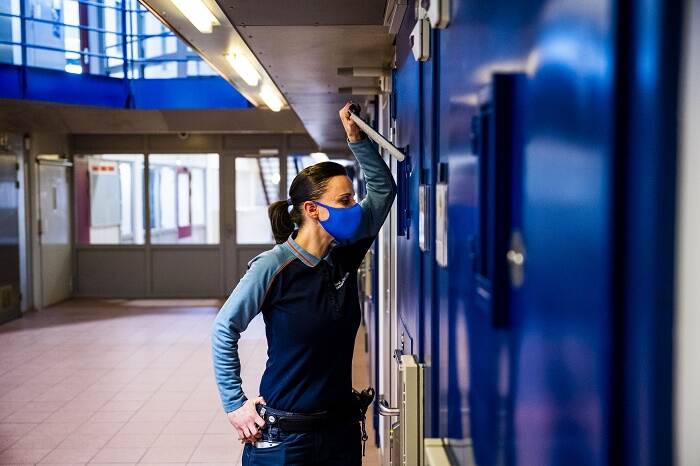Limited effect of Inspection Reports
Audit of 3 reports issued by the Justice and Security Inspectorate finds limited effect on tackling problems implementing laws and rules. Inspection reports have probably not helped improved implementation.

The Netherlands Court of Audit concludes from an audit of inspection reports that both the Minister of Justice and Security (J&V) and the organisations that carry out judicial tasks should make better use of the J&V Inspectorate’s reports. The inspectorate checks that implementing organisations carry out their public tasks correctly. The Court of Audit asked whether inspection reports led to concrete changes in implementation that had a definite social impact. The Court believes the answer to this question is important because the Minister of J&V would then know whether laws were having their intended effect or whether they needed to be amended.
To carry out its audit, the Court selected 3 reports that cast light on different aspects of the judicial system. The inspection reports looked at prisons (Out of Balance, 2018), the HALT Bureau for the prevention of youth criminality and restorative punishment programmes (2017) and the licensing of firearms (On the way to Balance, 2016). The Court selected older inspection reports in order to learn what effect they had had on the implementation of the law over a longer period of time.
The Court of Audit states in its report that problems named by the inspectorate were often already known to the ministry. Many of them were still occurring because the inspectorate’s recommendations have rarely if ever been acted on. Where problems have been resolved, measures had been taken before the reports were published. In the implementing organisations’ opinion, however, inspection reports increase awareness of the problems and the need for more funding to tackle them.
Firearms licences
It is not always clear why the inspectorate’s recommendations are rarely if ever acted on. A possible cause may be that the inspectorate does not consider how the implementing organisations are managed and funded. This was the case, for instance, in its inspection of how the police issue firearms licences to members of the public. The inspectorate concluded in 2016 that there was a lack of personnel. In the years that followed, the chief of police drew attention to this problem several times claiming that there was not enough money to address the lack of personnel. A solution still has to be found because the ministry thinks the system should be self-financing.
It is difficult to know whether or not the public benefit from the inspectorate’s recommendations. This should be known as it would increase understanding of the inspections’ effectiveness.
Effectiveness of HALT restorative punishment programmes
In its report on the HALT Bureau, the J&V Inspectorate recommended that the minister should find out what types of offence the punishments imposed by the Bureau were the most effective against. The minister did not act on this recommendation. In its audit report, Insight into Inspection Reports, the Court picked up on this recommendation by comparing the increase in repeat offences for different types of crime before and after the HALT Bureau had intervened. It found that the HALT’s restorative punishment programmes were least effective where young people were suspected of violent, property and other crimes. They were markedly more effective where young people committed minor offences such as playing with fireworks or not attending school. The Court of Audit concluded that the minister would have come to this insight himself if he had acted on the inspectorate’s recommendation. He could then have taken measures to increase the social impact of the HALT Bureau’s restorative punishment programmes.
In response to the Court of Audit’s report, the Minister of J&V said he would improve the effectiveness of inspection reports and make better use of the J&V Inspectorate’s critical and analytical findings. The new government would also increase the funding and scope of inspectorates.